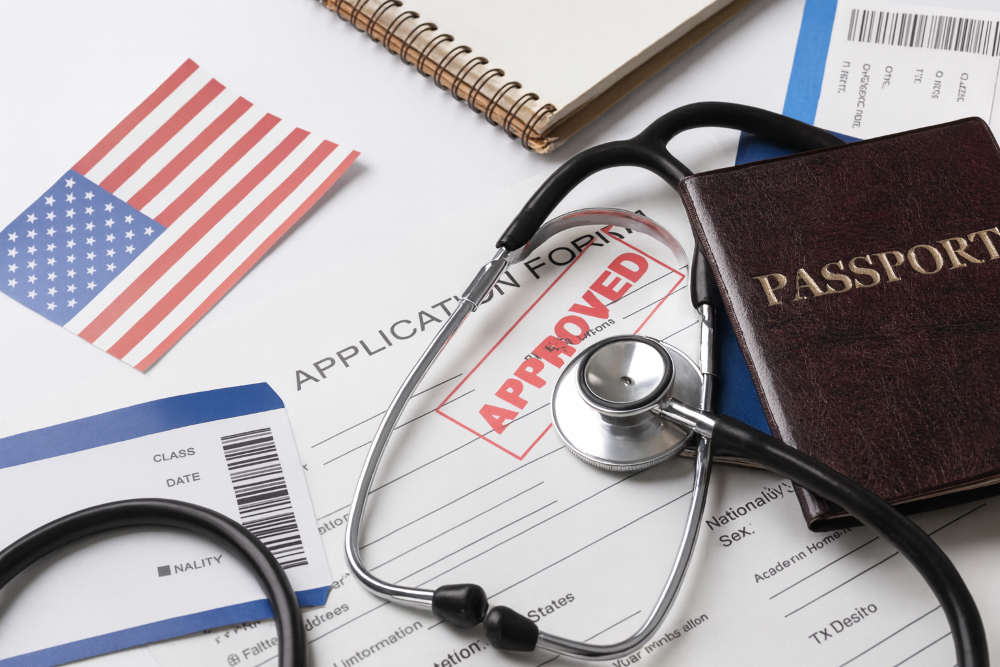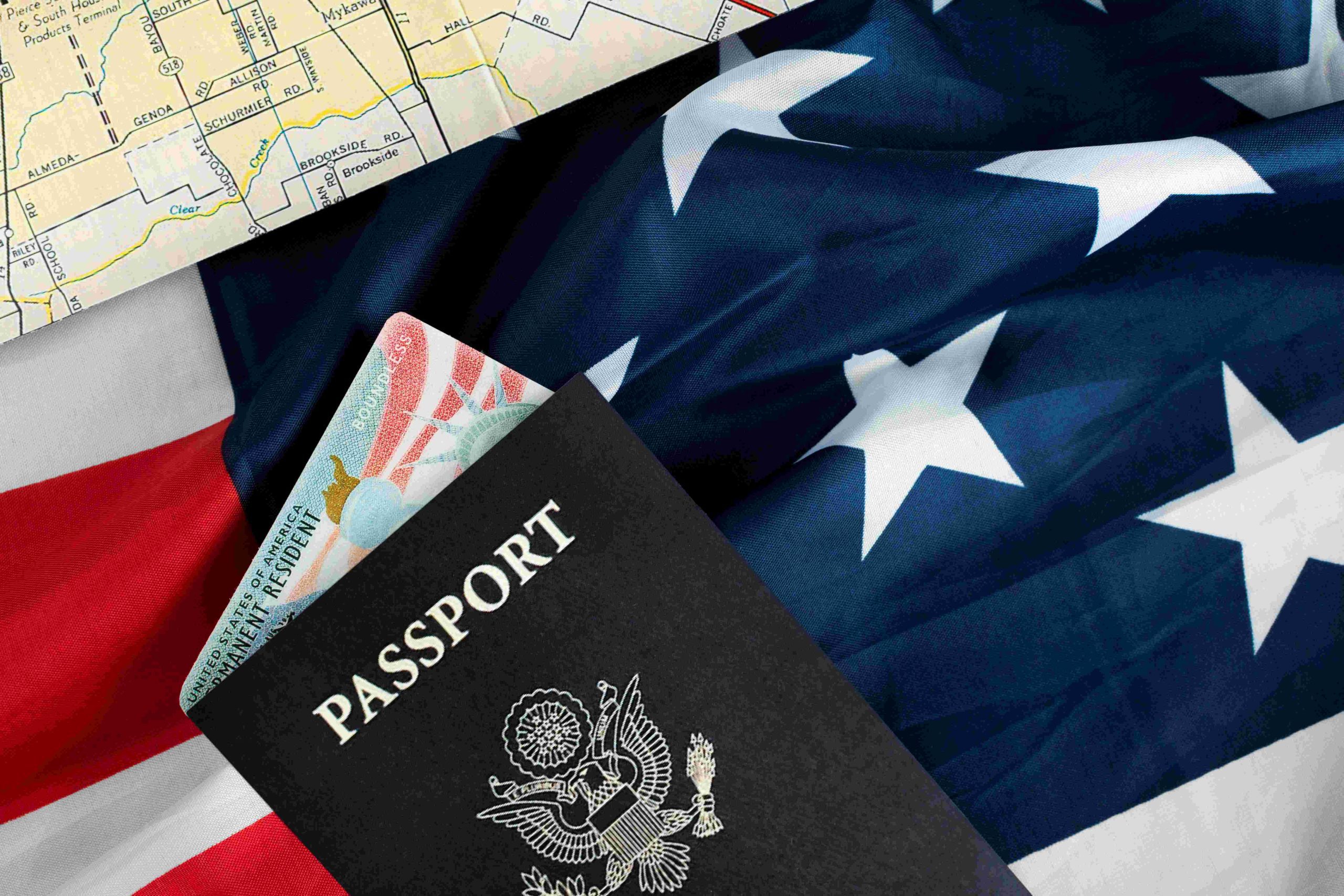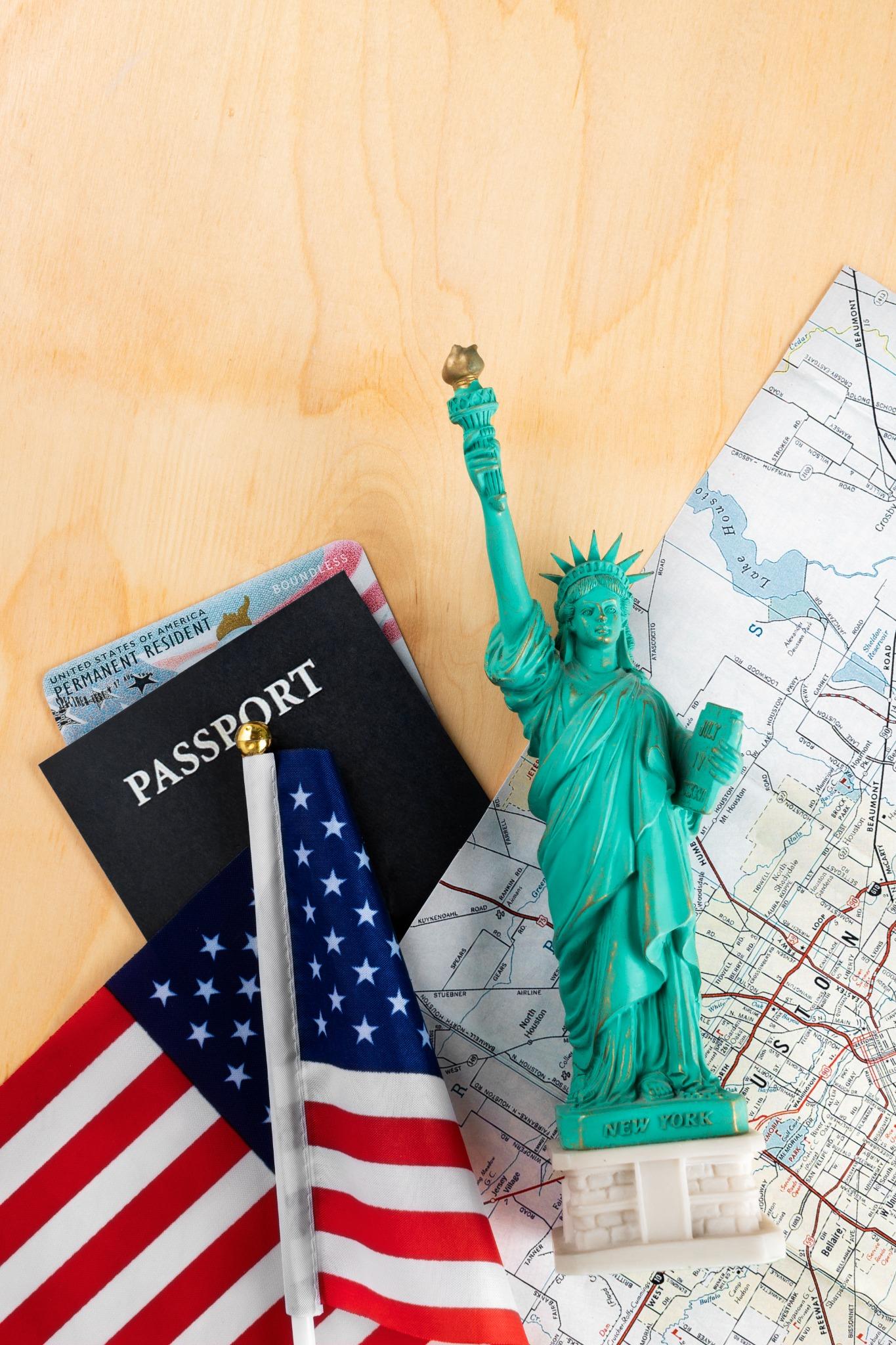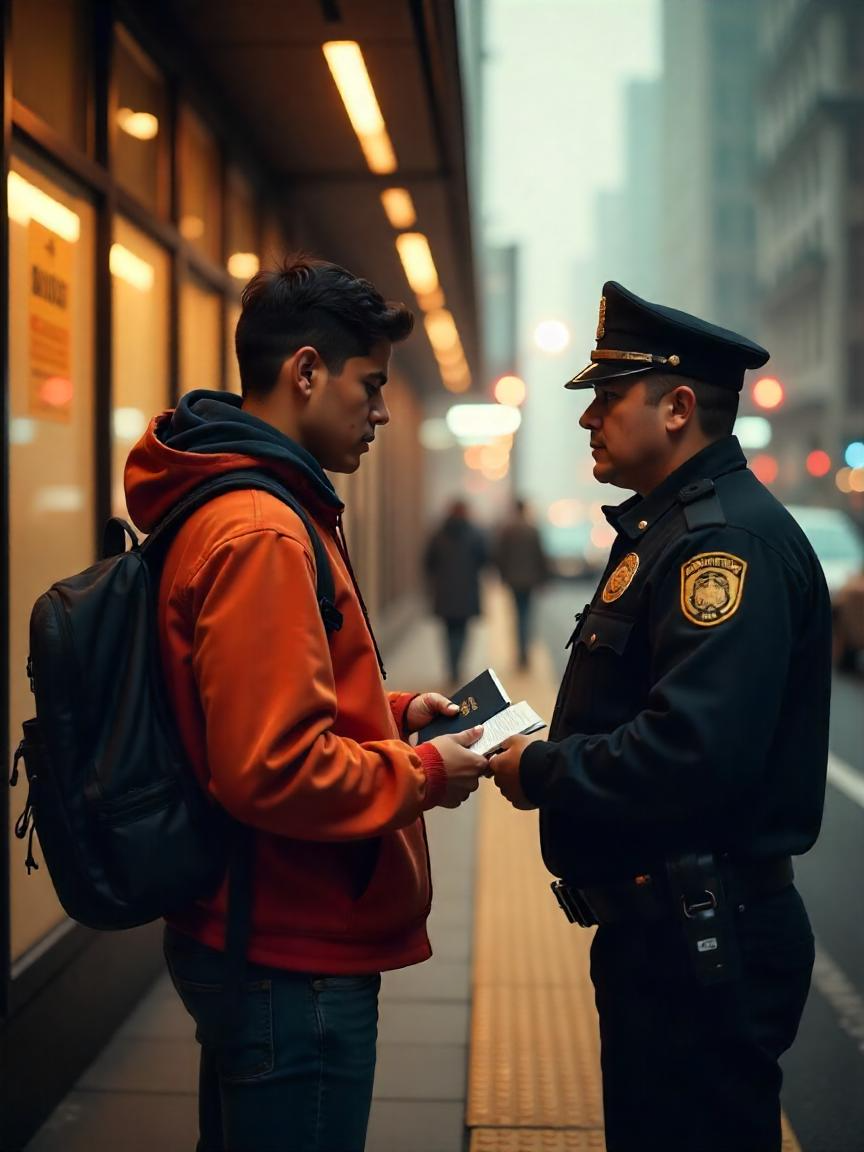
How to Apply for a U.S. Visa for Medical Treatment in Texas
Seeking medical treatment in the United States can be a life-changing decision, especially when advanced specialists and world-class healthcare facilities in Texas offer treatments unavailable elsewhere. If you or a loved one needs to travel to Texas for medical care, the U.S. B-2 Medical Treatment Visa is the pathway that makes this possible.
Applying for this visa involves strict documentation, proof of medical need, and financial assurances. This guide explains how the medical treatment visa works, who qualifies, and how to apply correctly.
What Is a U.S. Medical Treatment Visa?
A B-2 Tourist Visa can also be issued for medical treatment purposes, allowing individuals to enter the U.S. temporarily to seek care.
It is intended for:
- Serious or complex medical conditions requiring specialized treatment
- Procedures or surgeries unavailable in the applicant’s home country
- Continued care or follow-up treatments with U.S. physicians
- Specialized consultations or clinical evaluations
This visa does not permit employment, long-term residence, or indefinite stays. It only covers the period needed for medical treatment.
Who Qualifies for a Medical Treatment Visa?
To qualify, you must demonstrate:
A legitimate medical need
You must show that your condition requires treatment in Texas or the U.S.—and that comparable treatment is not available at home.
A confirmed medical appointment or treatment plan
You need proof that a U.S. hospital or doctor is willing and able to treat you.
Ability to pay for treatment and expenses
You must show financial capability or a sponsor who will cover:
- Medical treatment costs
- Travel expenses
- Living expenses during your stay
Intent to return home after treatment
It seems that the purpose of your visit must be temporary. Strong home-country ties, job, family, and property help prove this.
How to Apply for a U.S. Visa for Medical Treatment in Texas
Below is a step-by-step guide to submitting a complete and strong medical visa application:
1. Get Medical Diagnosis and Referral From Your Home Country
Before applying, gather:
- A written diagnosis from your doctor
- Medical reports or test results
- A letter explaining why treatment is needed abroad
This establishes the necessity of travelling to Texas.
2. Obtain a Treatment Plan and Cost Estimate From a Texas Hospital
A U.S. hospital or physician must provide:
- Confirmation of willingness to treat you
- Description of treatment or procedure
- Estimated length of treatment
- Detailed cost breakdown
Major Texas medical centers include:
- Houston Methodist
- MD Anderson Cancer Center
- Baylor College of Medicine
- UT Southwestern Medical Center
- Texas Medical Center physicians
3. Demonstrate Proof of Financial Ability
You must prove you can pay:
- Medical fees
- Transportation
- Accommodation
- Daily expenses
Financial proof may include:
- Bank statements
- Tax returns
- Employment letter
- Affidavit of financial support from a U.S. sponsor
- Proof of medical fundraising (if applicable)
4. Complete the Online Visa Application (DS-160)
Fill out the DS-160 form online accurately. Any errors or inconsistencies can delay processing.
Make sure you save:
- DS-160 confirmation page
- Payment receipt
5. Schedule a Visa Interview
You will attend a visa interview at your nearest U.S. Embassy or Consulate.
Bring:
- Passport
- DS-160 confirmation
- Medical records
- Treatment cost estimate
- Financial documents
- Proof of ties to your home country
The consular officer will ask questions about:
- Your medical condition
- Why treatment is needed in Texas
- Your ability to pay
- Your plans to return home
6. Attend Biometrics Appointment (If Required)
Some applicants must provide fingerprints and photos as part of the application.
7. Await a Decision
If approved, your passport will be returned with a B-2 visa that allows travel for your specified treatment duration.
Documents Required for a Medical Treatment Visa
Here is a complete list of documents to prepare:
Medical Documentation
- Diagnosis letter from your home-country doctor
- Medical records, scans, test results
U.S. Doctor/Hospital Documents
- Letter of acceptance for treatment
- Treatment plan
- Cost estimate
- Expected duration
Financial Proof
- Bank statements (6–12 months)
- Pay slips or employment letter
- Sponsor’s bank statements
- Affidavit of Support (Form I-134, if a sponsor is involved)
Other Required Documents
- Valid passport
- DS-160 confirmation
- Passport photos
- Proof of ties to your home country
- Travel itinerary
Common Reasons for Visa Denials
Medical treatment visas can be denied for:
- Insufficient financial proof
- Missing or unclear medical documentation
- Weak ties to home country
- Inconsistent statements
- Suspicion of intention to remain permanently
- Unverified hospitals or treatment plans
Working with an experienced immigration attorney significantly reduces these risks.
Final Thoughts on How to Apply for a U.S. Visa for Medical Treatment in Texas
Applying for a U.S. visa for medical treatment is a complex and rigorous process that requires substantial evidence. To be approved, you must clearly demonstrate medical necessity, credible financial resources, and your intent to return home once treatment is complete.
At Mokolo Law Firm, we guide clients through every step, helping you gather the right documents, prepare strong evidence, and present a complete and convincing application. Whether you are seeking life-saving treatment, specialized surgery, or a medical evaluation in Texas, our team ensures your visa process is handled with care and precision.
If you or your loved one needs assistance applying for a U.S. medical treatment visa, contact Mokolo Law Firm today. Your health and future deserve the highest level of legal support.

How to Adjust Your Status if You Are Already in the U.S.
For many immigrants, the United States represents opportunity, stability, and the promise of a brighter future. If you are already living in the U.S. and hope to remain here permanently, you may be able to do so without leaving the country through a process known as Adjustment of Status.
Adjustment of Status allows eligible non-citizens to apply for a Green Card from inside the United States, without having to return to their home country for visa processing. While this pathway is convenient and often less stressful, it includes strict eligibility requirements and a detailed application process.
What Is an Adjustment of Status?
Adjustment of Status (AOS) is the legal process that allows qualifying individuals already in the U.S. to transition from a temporary immigration status to lawful permanent residency (Green Card holder). This process is handled by U.S. Citizenship and Immigration Services (USCIS) and is available to individuals who qualify through family, employment, humanitarian programs, or other special categories.
Who May Apply for Adjustment of Status?
You may be eligible to adjust your status in the United States if you fall into one of the following categories:
1. Family-Based Eligibility
You may qualify if you are an immediate relative of a U.S. citizen, such as:
- A spouse
- An unmarried child under 21
- A parent of a U.S. citizen who is at least 21
Certain other family preference categories may also qualify when a visa number becomes available.
2. Employment-Based Eligibility
You may qualify if:
- You have an approved employment-based immigrant petition (Form I-140)
- A visa number is available in your category
3. Humanitarian Programs
Adjustment of Status may be available for individuals under programs such as:
- Refugee or asylee status
- VAWA self-petitioners (victims of domestic violence)
- U or T visa holders (victims of crimes or trafficking)
4. Diversity Visa (Green Card Lottery) Winners
Lottery winners who are already lawfully in the U.S. may apply if their visa number is current.
Who Is NOT Eligible for Adjustment of Status?
You may not qualify if you:
- Entered the U.S. without inspection (unless covered by specific exceptions such as INA 245(i))
- Overstayed your visa or violated its terms (unless you are an immediate relative of a U.S. citizen)
- Are currently in removal (deportation) proceedings without special eligibility
- Have certain criminal convictions
- Are inadmissible under immigration law without a waiver
Before applying, it is crucial to confirm eligibility with an immigration attorney, as mistakes can lead to denials or even removal proceedings.
How to Adjust Your Status in the U.S.
Here is the step-by-step process:
1. Confirm Your Eligibility
Verify that you qualify under one of the family, employment, humanitarian, or lottery categories and that a visa number is available.
2. Submit the Required Forms
The main application form is:
- Form I-485, Application to Register Permanent Residence or Adjust Status
Depending on your case, you may need to file additional forms, such as:
- Form I-130 (family petition) or Form I-140 (employment petition)
- Form I-864, Affidavit of Support
- Form I-693, Medical Examination Report
- Form I-765, Work Authorization
- Form I-131, Advance Parole (travel permit)
3. Attend Biometrics Appointment
USCIS will collect your fingerprints, photo, and signature for background checks.
4. Attend the USCIS Interview
A USCIS officer will review your documents, confirm your eligibility, and ask questions about your background and application.
5. Receive a Decision
If approved, you will receive your Green Card by mail.
If denied, USCIS will provide an explanation and any available next steps.
Documents You May Need
Common documents include:
- Passport and valid visa
- I-94 Arrival/Departure Record
- Birth certificate
- Proof of lawful entry
- Marriage certificate (if applicable)
- Medical exam results (sealed by the doctor)
- Financial documents (tax returns, pay stubs, bank statements)
Common Mistakes to Avoid
Many Adjustment of Status cases are delayed or denied due to avoidable errors. Be careful to avoid:
- Filing without confirming eligibility
- Submitting incomplete or inconsistent documents
- Traveling outside the U.S. without approved Advance Parole
- Missing a biometrics or interview appointment
- Failing to respond to USCIS Requests for Evidence (RFEs)
Final Thoughts on How to Adjust Your Status if You Are Already in the U.S.
Adjustment of Status is one of the most effective ways to become a lawful permanent resident while remaining in the United States. However, the process requires careful preparation, accurate documentation, and a solid understanding of immigration law.
At Mokolo Law Firm, we help clients determine eligibility, prepare strong applications, avoid common pitfalls, and navigate complex immigration histories. If you are considering applying for Adjustment of Status or are unsure whether you qualify, our experienced immigration team is ready to guide you every step of the way.
Contact Mokolo Law Firm today to schedule a consultation and take the next step toward securing your future in the United States.

What Are the Rights of Non-Citizens in Fort Bend County, Texas?
Fort Bend County, located in the heart of Texas, is one of the most diverse and fast-growing counties in the United States. With its rich history dating back to 1837 and vibrant communities shaped by people from all over the world, Fort Bend has become a hub for immigrants seeking better opportunities and a safe place to call home.
However, for many non-citizens, including immigrants, lawful permanent residents, refugees, asylum seekers, and undocumented individuals, the question often arises: “What are my rights here in Fort Bend?”
The good news is that, under both U.S. federal law and Texas state law, non-citizens are entitled to several fundamental rights and legal protections, regardless of their immigration status. These rights ensure fair treatment, access to justice, and protection from discrimination.
At Mokolo Law Firm, we are committed to defending and educating non-citizens in Fort Bend and throughout Texas about their legal rights. Understanding these rights can make a world of difference, from protecting your job to accessing public services or defending yourself in legal proceedings.
Let’s explore what rights non-citizens have in Fort Bend County and how local policies and resources can help you safeguard those rights.
1. Legal Protections for Non-Citizens
Under the U.S. Constitution, non-citizens are granted key legal protections that apply to everyone within the United States, not just U.S. citizens.
Due Process and Equal Protection (14th Amendment)
The 14th Amendment guarantees that “no person shall be deprived of life, liberty, or property, without due process of law.”
This means that non-citizens cannot be detained, deported, or punished without a fair legal process. Regardless of immigration status, everyone in Fort Bend has the right to a fair hearing and legal representation.
Protection from Unlawful Discrimination
Non-citizens are protected under various federal and state civil rights laws, including the Civil Rights Act and the Fair Housing Act, which prohibit discrimination based on race, national origin, religion, or immigration status in:
- Employment
- Housing and rental agreements
- Access to public facilities and government programs
At Mokolo Law Firm, we regularly assist clients facing discrimination or unfair treatment due to their immigration status, helping them assert their rights and seek justice under the law.
2. Access to Essential Services
Even without U.S. citizenship, many non-citizens in Fort Bend are entitled to access essential public services. While some benefits depend on immigration status, others are available to all residents, including:
- Public Education: Every child, regardless of immigration status, has the right to attend public school in Texas (as established by the Supreme Court in Plyler v. Doe, 1982).
- Emergency Medical Care: Hospitals and clinics must provide emergency care to all individuals, regardless of citizenship or ability to pay.
- Legal Assistance: Non-citizens can access nonprofit legal aid services for immigration, housing, or employment matters.
- Public Safety: Non-citizens can and should seek help from law enforcement if they are victims of crime or abuse. Local police are prohibited from denying assistance based on immigration status.
These protections exist to ensure that everyone in Fort Bend can live, learn, and work safely.
3. Protection from Discrimination and Exploitation
Non-citizens have the right to be free from discrimination and exploitation in workplaces, housing, and community spaces. Employers, landlords, and service providers cannot legally deny opportunities or mistreat someone because of their immigration status or national origin.
For example:
- Employers must pay fair wages and provide safe working conditions.
- Landlords cannot evict or refuse housing based on immigration status.
- Public services such as schools and hospitals cannot discriminate against immigrants.
If you experience discrimination or exploitation in Fort Bend County, Mokolo Law Firm can help you file complaints, report violations, and pursue justice through the appropriate legal channels.
4. Rights of Specific Groups of Non-Citizens
Not all non-citizens fall under the same legal category , and each group may have distinct rights and protections under U.S. immigration law.
Refugees and Asylum Seekers
Refugees and asylum seekers fleeing persecution are protected under both U.S. federal law and international human rights law. They have the right to apply for asylum, receive a fair hearing, and remain in the U.S. while their case is being reviewed.
Green Card Holders (Permanent Residents)
Lawful permanent residents enjoy most of the same rights as citizens, including the right to live, work, and own property. They are also protected by constitutional rights and may only lose their status through a formal deportation process.
Undocumented Immigrants
While undocumented immigrants do not have full citizenship privileges, they are still entitled to basic human rights such as due process, access to education for their children, protection from violence, and freedom from unlawful search and seizure.
DACA Recipients (Dreamers)
Individuals protected under the Deferred Action for Childhood Arrivals (DACA) program can lawfully live and work in the U.S. temporarily, and they are protected from deportation while their DACA status remains valid.
5. Local Context: Non-Citizen Rights in Fort Bend County
While the federal government sets the foundation for immigrant rights, local policies and organizations in Fort Bend also play a major role in protecting non-citizens and supporting their integration.
Local Legal Resources
Several legal aid organizations in and around Fort Bend County provide free or low-cost legal services to immigrants. These organizations can help with:
- Immigration applications (Green Cards, visas, asylum, etc.)
- Deportation defense
- Work authorization and documentation
- Family reunification and citizenship applications
Community Advocacy Groups
Fort Bend is home to several community advocacy groups that support immigrants through education, resources, and cultural programs. These groups ensure that non-citizens have access to information and help navigating life in Texas.
Mokolo Law Firm partners with many of these community organizations to offer legal clinics, workshops, and personalized consultations for immigrants and non-citizens across Fort Bend County.
Final Thoughts on What Are the Rights of Non-Citizens in Fort Bend County, Texas?
Non-citizens are a vital part of Fort Bend County’s rich and diverse community. From contributing to the economy to building families and neighborhoods, immigrants continue to strengthen the social fabric of Texas. Yet, misinformation and fear often prevent them from asserting their rights.
Contact Mokolo Law Firm Today
At Mokolo Law Firm, we believe that knowledge is protection. Every non-citizen, whether documented or not, deserves to understand their legal rights and access justice without fear of discrimination or retaliation.
If you’re a non-citizen living in Fort Bend County and facing legal challenges, uncertainty about your status, or discrimination, our experienced immigration attorneys are here to help. We provide compassionate, strategic legal guidance to protect your rights and secure your future. Let us help you understand your rights and protect your legal status in Fort Bend County.

The Impact of a Criminal Record on Your Immigration Case
For many immigrants, coming to the United States represents a chance for safety, stability, and new beginnings. However, when criminal charges or convictions arise, they can create serious complications for immigration status. What many people don’t realize is that criminal law and immigration law are deeply connected; even a seemingly minor offence can have lasting immigration consequences.
Whether you are applying for a green card, seeking U.S. citizenship, renewing a visa, or facing deportation, a criminal record can affect your case in unexpected ways. At Mokolo Law Firm, we help clients understand these risks and protect their rights through every step of the legal process.
The Impact of a Criminal Record on Your Immigration Case
Below, we break down exactly how criminal history impacts immigration and what you can do if you are facing this challenge.
1. How a Criminal Record Can Affect Immigration Status
A criminal record can influence nearly every part of an immigration case, including:
a. Visa Applications
When applying for a visa, applicants are required to disclose any criminal arrests or convictions. Depending on the nature of the offence, the U.S. government may deny the visa on grounds of inadmissibility, meaning the applicant is legally barred from entering the country. Crimes involving moral turpitude, drug offences, or fraud are common grounds for visa denial.
b. Green Card (Permanent Residency)
Applicants for permanent residency must also pass background and moral character checks. Certain crimes can make a person ineligible for adjustment of status or subject to deportation if already in the U.S. Even offences that occurred many years ago can be reviewed during the process.
c. Naturalization (Citizenship)
To become a U.S. citizen, one must show “good moral character” during the statutory period (usually five years before the application). Convictions such as domestic violence, aggravated assault, theft, or drug-related crimes can result in denial of citizenship — and in some cases, revocation of permanent residence.
d. Deportation or Removal Proceedings
Some convictions can trigger removal proceedings, even if the individual has been living in the U.S. for years or holds a green card. Crimes categorized as aggravated felonies or crimes involving moral turpitude can lead to mandatory deportation with limited chances of relief.
2. Types of Crimes That Affect Immigration Cases
Not every criminal offense leads to deportation or denial of immigration benefits. However, the Immigration and Nationality Act (INA) identifies specific categories of crimes that carry severe immigration consequences.
a. Crimes Involving Moral Turpitude (CIMTs)
These are offences that reflect dishonesty or bad moral character, such as fraud, theft, or assault with intent to harm. Even one conviction for a CIMT can cause inadmissibility or deportability, depending on the circumstances.
b. Drug-Related Offenses
Any controlled substance violation (other than a single minor possession of marijuana) can make a person inadmissible or deportable. Drug trafficking, manufacturing, or intent to distribute are particularly serious.
c. Aggravated Felonies
These are not always “aggravated” in the everyday sense. Under immigration law, aggravated felonies include crimes like burglary, certain theft offences, tax evasion, or even some misdemeanors if the sentence exceeds one year. A conviction in this category can result in permanent removal and a lifetime ban on reentry.
d. Domestic Violence and Protective Order Violations
Convictions for domestic abuse, child neglect, or violating protective orders can result in deportation and denial of future immigration benefits.
e. Multiple Criminal Convictions
Even if individual offenses are minor, multiple convictions can collectively make an immigrant inadmissible or deportable under federal immigration law.
3. How a Criminal Record Can Affect Different Immigration Benefits
Work Visas
Applicants for employment-based visas (such as H-1B or L-1) must prove they are admissible to the U.S. A prior conviction can lead to denial, especially if it involves fraud or moral turpitude.
Asylum Applications
Applicants seeking asylum must show they have not committed a “serious crime.” A conviction can make someone ineligible for asylum or refugee status, even if they face persecution in their home country.
Family-Based Petitions
If a U.S. citizen or permanent resident petitions for a family member, the beneficiary’s criminal record can delay or block approval. In some cases, the U.S. petitioner’s record may also affect the application if it involves certain offenses, such as crimes against minors.
4. Possible Legal Remedies and Waivers
The good news is that not all hope is lost if you have a criminal record. Immigration law provides certain waivers and legal defences that may allow you to remain in or re-enter the United States.
- Waiver of Inadmissibility: Some immigrants may apply for a waiver that forgives specific offenses, allowing them to continue with their immigration process.
- Post-Conviction Relief: In some cases, your attorney may be able to reopen or vacate a criminal conviction that is causing immigration issues.
- Cancellation of Removal: Immigrants in removal proceedings may qualify for cancellation of removal if they meet certain residency and character requirements.
- Deferred Action or Prosecutorial Discretion: In limited cases, immigration authorities may choose not to pursue deportation based on humanitarian factors or family hardship.
5. Why You Should Work with an Immigration Attorney
Because criminal and immigration law intersect in complex ways, even a small mistake can have serious, irreversible consequences. It’s critical to have an attorney who understands both criminal defense and immigration law.
A qualified immigration lawyer can:
- Review your criminal record and identify which convictions may pose risks.
- Communicate with both immigration and criminal courts to ensure consistent legal strategies.
- Help you apply for waivers, appeals, or post-conviction relief when available.
- Represent you in deportation or removal proceedings and protect your rights.
@legallyuzo Red flags to look out for in your immigration lawyer. #Redflags #Immigration
♬ Walk It Out – Unk
Final Thoughts On The Impact of a Criminal Record on Your Immigration Case
A criminal record does not always mean the end of your immigration journey, but it does make the path more challenging. The key is to act early, seek legal advice, and understand your rights under both immigration and criminal law. We analyze each case carefully to determine which legal strategy gives you the best chance to protect your status and your future.
At Mokolo Law Firm, we are committed to guiding immigrants through even the most difficult legal situations. Our experienced attorneys provide compassionate representation and practical solutions to help you stay on the right side of the law and keep your American dream alive.
Contact us today for a confidential consultation. Let us help you protect your immigration status, your family, and your future.

Understanding the Types of Visitation in Fort Bend County, Texas
When parents go through a divorce or separation in Texas, one of the most important issues to resolve is child visitation. The law recognizes that children do best when they maintain a healthy relationship with both parents, even if the parents are no longer together.
In Fort Bend County (and throughout Texas), visitation is formally called “possession and access.” This simply means the right of a parent to spend time with their child and be involved in their upbringing. This guide breaks down the main types of visitation available in Fort Bend so you can better understand your options.
1. Standard Possession Order (SPO)
The Standard Possession Order is the most common visitation schedule in Texas. It applies when parents live within 50 miles of each other, although variations exist for longer distances.
Under a typical SPO:
- The noncustodial parent (the parent who does not primarily live with the child) usually has visitation:
- First, third, and fifth weekends of each month (from Friday evening to Sunday evening).
- Thursday evenings during the school year.
- 30 days in the summer.
- Alternating holidays such as Thanksgiving, Christmas, and spring break.
This schedule is considered the “default” in Texas because it provides consistency and fairness while keeping the child’s best interests in mind.
@legallyuzo Visit: https://www.mokololaw.com/practice/child-custody
♬ original sound – Legallyuzo –
2. Expanded Standard Possession Order (Expanded SPO)
In many cases, parents agree to or request an Expanded Standard Possession Order. This schedule gives the noncustodial parent more time with the child than the standard order allows.
Key features include:
- Weekend visitation starts Thursday after school and ends Monday morning (instead of Friday–Sunday).
- Midweek visitation may include overnight stays instead of just evening visits.
This option is becoming increasingly popular because it allows children to spend longer, uninterrupted periods with both parents.
3. Supervised Visitation
When there are concerns about a child’s safety or well-being, the court may order supervised visitation.
Examples of situations where supervised visitation may apply include:
- History of family violence or abuse.
- Concerns about substance abuse.
- Long absences from the child’s life.
- Situations where the child is not yet comfortable being alone with the parent.
In these cases, visits take place under the supervision of a neutral third party — this could be a professional supervisor, a trusted family member, or a visitation center approved by the court.
4. Possession Orders for Long-Distance Parents
If parents live more than 100 miles apart, the visitation schedule changes significantly.
In this case, the noncustodial parent may have:
- One weekend per month instead of three.
- Extended summer visitation (up to 42 days).
- Alternating holidays similar to the standard order.
This arrangement balances the reality of long travel distances with the child’s need for ongoing contact with both parents.
5. Custom or Agreed Visitation Schedules
Sometimes parents agree on a visitation schedule that is different from the standard options. Courts will usually approve these custom schedules as long as they are in the best interests of the child.
For example, parents may agree to:
- Split time evenly (a true 50/50 schedule).
- Adjust for a parent’s unique work schedule (such as shift work or military duty).
- Arrange flexible schedules for older children who have extracurricular activities.
Custom schedules work best when both parents communicate effectively and are committed to co-parenting.
6. Denial of Visitation
In extreme cases, a court may deny visitation altogether, but this is rare. This usually happens only when a parent poses a serious and ongoing danger to the child, and supervised visitation is not enough to protect them.
Key Factors Courts Consider in Fort Bend Visitation Cases
When deciding on visitation, Texas courts always prioritize the best interests of the child. Judges may look at:
- The child’s age and needs.
- Each parent’s ability to provide a safe, stable environment.
- The history of each parent’s relationship with the child.
- Any history of abuse, neglect, or substance use.
- The willingness of each parent to foster a positive relationship between the child and the other parent.
Understanding the Types of Visitation in Fort Bend County, Texas
Visitation in Fort Bend County is not a one-size-fits-all process. From the Standard Possession Order to custom agreements and even supervised visits, the law provides different options to meet the unique needs of children and families.
Contact Mokolo Law Firm
At Mokolo Law Firm, we know that visitation disputes can be emotional and confusing. We are here to help you navigate the legal process, protect your parental rights, and ensure your child’s best interests are always put first. Whether you’re seeking to establish, enforce, or modify a visitation order, our team is ready to stand by your side. Contact us to schedule a consultation and learn how we can help you with your visitation case in Fort Bend.

Thrown Back Into Deportation Proceedings? How to Fight Back with Removal Defense
Facing deportation even after previously winning relief can feel like being thrown back into the storm you thought was behind you. However, that doesn’t mean your options are gone. In Texas, when removal proceedings resume, you may still have legal tools to fight back, such as reopening cases, asserting cancellation of removal eligibility, or applying anew for relief based on changed circumstances. This guide helps you understand your rights and how Mokolo Law Firm can help defend your case and keep you here with your family.
Understanding Why Proceedings Can Restart
Removal (deportation) proceedings can resume if:
- Your prior relief was overturned on appeal
- New evidence emerges
- Filing deadlines were missed, or an improper waiver was granted
- An ICE detainer was placed after case closure
@legallyuzo They said “show your work” – so we dropped a whole stack of proof. 📁✅ From green cards to permanent residency, we’ve been delivering results for real. ImmigrationLaw GreenCardApproved ReceiptsReady #MokoloLaw Learn more: https://www.mokololaw.com/practice/immigration-law/
♬ original sound – Legallyuzo – Legallyuzo
Legal Strategies to Push Back
1. Motion to Reopen or Reconsider– If your case ended unfairly or with procedural errors, there may be a chance to revisit it.
2. Changed Circumstances– If you’ve built more substantial ties to the U.S. (e.g. new family, community service, employment), you may be eligible for “Cancellation of Removal” or other forms of relief.
3. Asylum / Withholding / CAT– Changed country conditions may allow new applications to avoid deportation to your home country.
4. Adjustment of Status– If your lawful status has materially changed (e.g. marriage to a U.S. citizen), you may now qualify for a green card.
Evidence to Gather
- Updated family, work, and community documents
- Medical records or proof of abuse or threats
- Character references (employers, clergy, employers)
- Country condition reports demonstrating worsening conditions in your home country
How a Law Firm Can Help
- Assess your history and immigration records
- File timely motions or applications grounded in Texas and federal immigration law
- Prepare compelling documentation and legal briefs
- Represent you at hearings or appeals

Final Thoughts on Thrown Back Into Deportation Proceedings? How to Fight Back with Removal Defense
Being placed back into deportation proceedings is daunting, but it doesn’t have to be the end. With the right legal strategy and strong evidence, you can fight to remain with your community and family. At Mokolo Law Firm, we believe every person has the right to a fair hearing and a chance at relief. If you’ve been returned to removal proceedings or believe you may be next, reach out to us immediately to explore your legal options and begin your defense today.

Steps to Renew Your Green Card In Texas
Renewing a green card is a process of extending the validity of a permanent resident card for lawful permanent residents who wish to continue residing in the United States. A green card owner is a lawful permanent resident of the United States of America and an identification of yourself, which proves that you have the right to legally live and work anywhere in the U.S. This green card has a life span of 10 years before it expires, and you are to renew it within the next six months or when it has reached its expiry date.
This guide explains the steps to renew your green card in Texas, including processing times, fees, and step-by-step instructions.
Steps to Renew Your Green Card in Texas
As a lawful permanent resident in Texas, you can renew your green card yourself, but it is advisable to let a professional immigration attorney in Texas take the stress off you and also ensure it is done correctly without mistakes.
If you do choose to renew your green card yourself, the easiest method is usually renewing online using the U.S. Citizenship and Immigration Services (USCIS) online portal. When you renew your green card online, you can see when USCIS receives your application and get updates on its status.
Eligibility for Green Card Renewal
Not all green card holders are eligible for green card renewals. To be eligible, you must meet the following criteria:
- Your green card is expired or will expire within six months
- You are a permanent resident with a ten-year green card
- You have not been outside of the United States for more than one year since receiving your green card
If you do not meet these criteria, you may need to apply for a replacement green card instead. It is important to consult with an experienced immigration lawyer to determine the best course of action for your specific situation.
Requirements for Green Card Renewal
- Your current green card
- Proof of residency
- Personal identification documents
Green Card Renewal Processing Time
The processing time for renewing a green card is usually between 7 to 12 months from the date of filing Form I‑90. However, there may be some delays, which may happen due to:
- Additional security checks
- High volume of applications at USCIS
- Incomplete application submissions
Expedited Processing
If you need to renew urgently due to an emergency, financial hardship, or humanitarian reasons, you may request expedited processing. Supporting documentation is required. If approved, your application will be processed significantly faster.
Green Card Renewal Fees
Fees may change at any time, so it is advisable to always check the USCIS website for the latest fee updates. If you are facing financial hardship, you may qualify for a fee waiver.
You are to make payments for:
- Application fee
- E-file fee
- Biometrics fee
Step-by-Step Guide to Renewing Your Green Card as a Legal Permanent Resident
Step 1: Sign into your USCIS Account
To renew your green card as an LPR, you must have an account with USCIS. Then sign into your account using your email address and password to log in.
Note: Every member of your family will have their own account, even your minor children.
Step 2: Submit Form I‑90
To start the renewal process, submit Form I‑90 (Application to Replace Permanent Residence Card) with USCIS. Form I‑90 is available online. You will need to fill it out entirely. You can file the form either online or by mail, which requires you to submit a photocopy of your current or expired green card, as well as pay your fees.
File Online
Create an account on the USCIS website, complete Form I‑90, upload necessary documents, and pay the fees. Filing online allows you to track your application status and receive updates directly.
File via Mail
Download Form I‑90 from the USCIS website, complete it, and mail it along with the required documents and payment to the address listed on the form.
Step 3: Receipt Receive Notification
After USCIS receives your Form I‑90, you will get a receipt notice within 1 to 3 weeks. This notice includes a unique receipt number for tracking your case online.
Step 4: Biometrics Appointment Notice
USCIS will schedule a biometrics appointment within 4 to 6 weeks of receiving your application. You will receive an appointment notice with the date, time, and location.
Step 5: Attend Biometrics Appointment
The biometrics appointment is typically scheduled 2 weeks after receiving the appointment notice. Bring your appointment notice and a valid ID. Your fingerprints and photo will be taken.
Step 6: Receive Your New Green Card
Once biometrics are completed, USCIS will continue processing your renewal. Your new green card should arrive within 7 to 11 months from the date of filing.
When to Renew Your Green Card
Failing to renew your green card won’t cost you your lawful permanent resident status—but an expired card has no practical use. You can’t use it to prove your legal status in the U.S., nor can you present it for employment, travel, or other official purposes. That’s why it’s essential to keep your green card valid at all times.
It’s best to start the renewal process about six months before your card expires. If you’ll be outside the U.S. during that period, consider applying even earlier. An experienced Austin immigration attorney can handle the renewal process for you—preparing and filing Form I‑90 (Application to Replace Permanent Resident Card)—so you can stay focused on what matters most.

Special Cases for Green Card Renewal
- Applying for a fee waiver: Must file Form I‑90 by mail.
- Expired green card while traveling abroad: Contact the nearest U.S. consulate, USCIS international office, or U.S. port of entry before filing Form I‑90.
- 2-year conditional green card: Follow a different process for conditional green card holders.
While your lawful permanent resident status does not expire, your green card does. Once you’ve been granted permanent residency in the U.S., you maintain that status as long as you follow the rules.
However, green cards are issued in 10-year increments. This is partly because your appearance may change over time, and physical cards can become worn or damaged.
If your green card has expired, you cannot use it for employment, international travel, or to verify your identity. That’s why it’s necessary to renew your green card every ten years by applying for a replacement.
How to Check Your Green Card Renewal Status
You can check your renewal status on the USCIS Case Status Online page by entering your receipt number. Creating a USCIS account allows you to receive case notifications.
What to Do If Your Green Card Renewal is Denied
If USCIS denies your renewal, you will receive a notice explaining the reason. You may be able to appeal or file a motion to reopen or reconsider the decision.
Frequently Asked Questions
Processing delays can occur due to a high volume of applications, additional background checks, or incomplete applications. Ensure all documents are correctly submitted to avoid delays.
You can renew your green card if you’re outside the United States, although it may be better to file for renewal early. Naturally, you can’t do that if your travel was unexpected—but, if possible, you should renew your green card while you’re at home. If you’re outside the U.S. when your card expires, you’ll need to contact the nearest U.S. consulate in your area before you file your renewal form.
If your green card has conditions attached to it—as is typically the case with marriage-based green cards—you can’t simply renew your card. You must petition the U.S. government to remove the conditions on your green card. If the government grants your petition, you’ll be issued a brand-new 10-year green card, which you won’t have to renew for another 9 years and 6 months.
You are still a lawful permanent resident, but some activities, such as traveling or employment verification, may be challenging. Use your USCIS receipt notice (Form I‑797) as proof of pending renewal. When you apply to renew within 12 months of an expiring green card, you will receive an I‑797 that extends your status for an additional 12 months.
The U.S. government can deny your petition to renew your green card; however, that doesn’t necessarily mean you’re deportable—or that you’re in danger of losing your lawful permanent resident status. In some cases, a denial is simply due to an administrative error.
There are cases in which the government will deny a person a green card renewal because that person is in danger of losing his or her permanent residency.
1. Committing a certain type of crime or a series of crimes
2. Voting or attempting to vote as a U.S. citizen
3. Failing to complete a timely change of address form with USCIS when you move to a new home
4. Failing to establish a permanent residence in the U.S.
5. Abandoning your permanent residence in the U.S.
6. Committing fraud during the application process (either for the original visa that brought you to the United States or for your green card)
Yes, you can travel, but you must carry your expired green card and Form I‑797 to re-enter the U.S. These documents confirm your lawful status.
Previous versions of alien registration cards, such as USCIS Form AR‑3, Form AR‑103, and Form I‑151, are no longer valid. You must replace them with a current green card.
Get Trusted Legal Help from Mokolo Law Firm
Going through the immigration process can be overwhelming, especially with strict requirements and the risk of delays from even small errors. Whether you’re renewing a green card, adjusting your status, or applying for lawful permanent residency, having the right legal guidance makes all the difference.
At Mokolo Law Firm, we focus exclusively on immigration law. Our experienced attorneys are well versed in the application process and are committed to helping clients avoid costly mistakes and unnecessary stress. Let us handle the paperwork while you focus on your future. Contact Mokolo Law Firm today to learn how we can assist you and your loved ones on your immigration journey.

How to Apply for the I‑601 Waiver for Illegal Presence in Texas
Immigration law is full of difficult decisions, but facing a bar to admission due to unlawful presence doesn’t have to be the end of your journey. With the I‑601 Waiver, many immigrants have a real shot at legalization, even after overstaying a visa, entering without inspection, or being denied at a U.S. consulate.
Here’s everything you need to know about the Form I‑601 waiver, especially if you’re working with Mokolo Law Firm, where our experienced immigration attorneys specialize in hardship waivers and complex immigration barriers.
What Is the I‑601 Waiver?
Form I‑601, also called the Application for Waiver of Grounds of Inadmissibility, is used when the U.S. government finds you ineligible for a visa or green card. This waiver gives you the opportunity to apply for forgiveness so your case can move forward.
Common grounds for needing an I‑601 waiver include:
- Unlawful presence in the U.S. (more than 180 days or 1 year, triggering 3- or 10-year bars)
- Fraud or misrepresentation (e.g., using a false document at entry)
- Certain criminal convictions
- Health-related grounds (e.g., lack of required vaccines)
- Prior removal or deportation orders
The Difference Between I‑601 vs. I‑601A
Form I‑601 is used by individuals applying from outside the U.S. or after being declared inadmissible during a visa or green card process.
Form I‑601A, on the other hand, is for unlawful presence waivers filed inside the U.S. before the applicant departs for consular processing.
If your inadmissibility stems solely from unlawful presence (either over 180 days or over one year), and you’re still in the U.S., you must use Form I‑601A.
Who Qualifies for the I‑601 Waiver?
To qualify, you must have a “qualifying relative” who would suffer extreme hardship if you are not admitted to the U.S.
Qualifying relatives include:
- U.S. citizen or lawful permanent resident (LPR) spouse
- U.S. citizen or LPR parent
- In certain cases, U.S. citizen or LPR children (especially under other waiver categories)
Note: The hardship is measured on the qualifying relative, not on you, the applicant.

How to Apply for an I‑601 Waiver
1. Confirm Inadmissibility
You must first be found inadmissible by USCIS or a U.S. consular officer. This usually happens during a visa or adjustment interview. Only then can you apply for the waiver.
2. Build the “Extreme Hardship” Argument
One of the most critical components of a successful I‑601 application is proving extreme hardship to the qualifying relative. General emotional distress or separation is not enough. USCIS doesn’t grant waivers easily. You must prove that your relative would suffer hardship beyond the normal consequences of family separation.
You must demonstrate hardships such as:
- A spouse with a chronic illness who depends on your care
- A U.S. citizen child with special educational or medical needs
- Economic harm that would prevent your family from affording necessities
- Lack of safety or healthcare in your home country
- Separation from a support network that your qualifying relative depends on
All claims must be backed by documented evidence, such as:
- Medical reports, diagnoses, and treatment plans
- Financial records (tax returns, pay stubs, debts, etc.)
- Psychological evaluations
- Country condition reports (crime, poverty, healthcare access)
USCIS Considerations
USCIS evaluates a wide range of factors, including:
- Health and treatment needs of the qualifying relative
- Financial stability and the impact of separation
- Educational access and employment opportunities
- The applicant’s immigration history and length of U.S. residence
- Family ties and potential separation
- Criminal history and rehabilitation efforts
- Community involvement and moral character
Application Package Checklist
The application package checklist includes:
- Form I‑601: Must be completed and signed
- Filing fee: Check the latest fee at the USCIS.gov website
- Personal affidavit: tell your story, truthfully
- Affidavits from family, clergy, employers
- Evidence of hardship: should be organized into exhibits
- Cover letter: explaining your case and summarizing evidence
Application Timeline and Challenges
The I‑601 process is hard, time-consuming, and often emotionally taxing. The average processing time could take 8–15 months, but varies by service center and case complexity, and delays are common due to:
- Requests for additional evidence (RFEs)
- Processing backlogs at the National Visa Center (NVC)
- Lost or overlooked documents
Note: Always keep scanned copies of everything you send to USCIS and NVC.
Where to File
- If you are applying from outside the U.S., file through the consulate handling your immigrant visa
- If you are inside the U.S., mail the form to the USCIS address listed on the I‑601 instructions
- If in removal proceedings, you may be required to file with the immigration court
Denied Waiver
A denial of your waiver doesn’t necessarily mean the end. There are other options, and they are:
- Filing Form I‑290B to appeal or reopen the case
- Submitting a new waiver with additional or stronger evidence
- Seeking alternate forms of relief (e.g., cancellation of removal, asylum)
Reasons Why You Should Consult a Legal Practitioner
I‑601 waiver success depends on legal strategy, strong documentation, and persuasive hardship narratives. A small omission or vague hardship claim can result in denial. You need a professional attorney who is trained to:
- Identify every relevant hardship factor
- Guide you in assembling persuasive supporting documents
- Write compelling affidavits tailored to USCIS expectations
- Ensure procedural accuracy to avoid delays
Final Thoughts On I‑601 waiver
The I‑601 waiver is a powerful tool for overcoming immigration bars, but success depends on a clear legal argument, strong supporting evidence, and attention to detail.
At Mokolo Law Firm, we specialize in family-based immigration solutions, hardship waivers, and consular processing. We help clients build the strongest possible case by tailoring each waiver to their personal and legal circumstances. Let us build a compelling case for you and help you reunite with your family in the U.S. Call us today or schedule a consultation.

Top 5 Common Visa Mistakes to Avoid When Applying for Immigration to the USA
Applying for immigration in a choice country is exciting, but the process is not without its challenges. A single mistake on your application can lead to delays, denials, or even jeopardize your immigration status, which is why we have created this blog to help you avoid negative consequences from small errors.
Top 5 Common Visa Mistakes to Avoid When Applying for Immigration to the USA
1. Ignoring Important Research
Not all visa requirements are the same. Make sure to do serious research on the specific requirements of your desired visa category. Each visa type comes with unique regulations and expectations. For instance, a student visa for the USA may have different stipulations than a work visa. Researching where your destination’s embassy or consulate is located can be equally important. Ignoring this can result in an application that lacks crucial details, leading to unnecessary delays or even outright rejections.
Aside from checking the official government sites, it is to your benefit to read the experiences of other applicants on the site. Common loopholes shared by past applicants can offer invaluable insights. Lastly, keeping updated on any changes in immigration policies for the USA can help you better prepare.
2. Incomplete or Incorrect Documentation/Information
One of the biggest reasons for visa denial is leaving sections blank or providing incorrect information. Always cross-check your application form to ensure every section is filled out correctly and truthfully. Even small errors can lead to delays or denials. This may look simple, but it is not always the case. Just one missing piece of information can derail your visa application, causing frustrating delays. Your name, date of birth, proof of statement of account, etc., must be filled out accurately. Each document plays a unique role in convincing the visa officer of your case’s validity.
Also, note that embassies often cross-check your application with other records, such as previous visa applications or travel history. Ensure your names, dates, and other personal details match exactly across all submitted documents. You must be consistent to avoid doubts about the authenticity of your application.
3. Missing Visa-Specific Guidelines/Deadlines
Timing is crucial. Applying too close to your planned travel date might not leave enough time for processing. On the other hand, submitting too early might result in complications if your plans change. Follow the recommended timelines for your specific visa type. The visa application processing can take longer than expected. Plan your application timeline accordingly to avoid last-minute stress. Different visa types have unique requirements and varying processing times, and in some cases, waiting until the last moment may result in missing key deadlines or, worse, losing a time-sensitive opportunity. For example, a student visa may demand proof of enrollment, while a work visa might need a detailed employment offer. Familiarize yourself with the guidelines for your visa category to ensure you’re meeting all requirements.
To avoid these, always check the current visa processing times for your specific category. Tracking important dates such as filing deadlines, biometrics appointments, and interview schedules, responding promptly to any USCIS Requests for Evidence (RFE), and working with an experienced immigration attorney who can help you stay on schedule are all ways to avoid the pitfall of missing deadlines. Embassies often update their average processing times on their websites. Failing to meet submission deadlines or missing follow-up deadlines for additional information can delay your USA green card process or even lead to denial.
4. Ignoring Follow-up Requests
If the processing office requests additional information or documents, respond promptly and accurately to avoid delays. Follow-up requests are often time-sensitive, and a delayed response can push back the processing of your visa application. Keep an eye on your emails and spam folders to ensure you don’t miss any important communications from the visa office.
Responding comprehensively to follow-up requests not only demonstrates your commitment but also aids the office in processing your application efficiently. Providing all requested information in a single, organized response can help streamline their analysis and expedite your processing time.
5. Insufficient Proof of Financial Support
Many visa types require proof of financial stability. Ensure that you provide adequate and clear evidence of your financial status. This includes bank statements, sponsorship letters, or employment contracts. Financial proof significantly impacts the decision-making process, as it assures the visa officer that you can support yourself during your stay and that you are less likely to become a burden or a nuisance during your stay on the USA’s resources.
It’s beneficial to gather more documentation than you think you might need to present a comprehensive case. Factors such as income stability and access to liquid assets are often scrutinized. Consistent documentation over several months, rather than last-minute lump sums, often provides a clearer picture of your financial health and can make all the difference in your application.
@legallyuzo What are the red flags to watch out for in your immigration lawyer? 🚩 Top 2: 1️⃣ Poor communication – If you’re always chasing them for updates, that’s a problem. 2️⃣ Unrealistic promises – If it sounds too good to be true, it probably is. Your case deserves honesty and clarity, not confusion and hype. Visit: https://www.mokololaw.com/practice/immigration-law/
♬ original sound – Legallyuzo – Legallyuzo
Final Words on Top 5 Common Visa Mistakes to Avoid When Applying for Immigration to the USA
Navigating the visa application process can be challenging, but avoiding common mistakes can significantly increase your chances of approval. If the visa process feels overwhelming or confusing, don’t hesitate to seek guidance from experts. They can help you understand the process, ensure your application is complete, and provide advice on avoiding mistakes. Whether you’re applying for a student visa, work visa, or travel visa, these tips will help you steer clear of pitfalls and submit a strong application.

Mokolo Law Firm Can Make A World Of Difference For Your Immigration Application
We understand the importance of getting your immigration application right, especially when you’re pursuing opportunities in the USA. Our immigration lawyers are trained to help you achieve your dreams while providing expert guidance on visa processes, career growth, and cross-cultural experiences.
We’d like to help you take the first step toward a successful application. With the right preparation and our support, your visa application process can be smooth and stress-free! Contact us now.

What To Do If The Police Ask About Your Immigration Status in Houston, Texas
Having an encounter with the police can be a nerve-wracking experience for both immigrants and non-immigrants. If you’re an immigrant or have unresolved immigration issues, it can make the situation even more complex. By knowing your rights and understanding how to handle these encounters, you can better protect yourself and ensure a safer experience. In this blog, we will discuss what to do if the police ask about your immigration status in Houston, Texas.
Tensions can run high when dealing with police officers, and the way you respond is very important. Neither you nor the officer knows how the encounter might end. Depending on your immigration status, the outcome could have serious consequences. Therefore, it is crucial to remain calm and think carefully before responding, in order to avoid any negative impact on your immigration process.
U.S. immigration law is enforced by federal agencies such as Immigration and Customs Enforcement (ICE), United States Citizenship and Immigration Services (USCIS), and Customs and Border Protection (CBP). State and local police officers generally do not have the authority to enforce federal immigration laws; it is not part of their official duties.
However, in 2017, a law known as Senate Bill 4 (SB4) was passed, granting Texas law enforcement officers the authority to inquire about an individual’s immigration status during lawful detentions or arrests. Texas is one of the few states to have implemented this law.
Read This: How To Apply For USA Citizenship in Houston Texas

Here Are What To Do If The Police Ask About Your Immigration Status in Houston, Texas
1. Know and Understand Your Rights
The first step in handling a police encounter is to know and understand your rights. Regardless of your immigration status, certain fundamental rights are protected under the U.S. Constitution. These include:
- The right to remain silent: Protected by the Fifth Amendment, this right allows you to refuse to answer questions about your birthplace, citizenship status, place of residence, or any other information that could incriminate you.
- The right to refuse consent to a search: The police may only search your home or property if they have a valid search warrant signed by a judge. If they do not, you can politely ask them to leave.
- The right to an attorney: If you face any legal issues as an undocumented immigrant, you have the right to be represented by an attorney.
You are not obligated to disclose your immigration status unless you are being detained by immigration authorities.
2. Be Calm and Polite
It is important to remain calm and respectful during any interaction with the police. Cooperate without volunteering unnecessary information. Avoid arguing, making sudden movements, or acting suspiciously. Reaching for items without permission may be perceived as threatening behavior and could escalate the situation.
Remember, being polite does not mean surrendering your rights. You can assert your rights respectfully.
3. Be Very Observant and Watchful
In some cases, police officers may act outside the scope of the law. If you are arrested or detained without just cause, it’s essential to gather as much evidence as possible. Be proactive in noting the officers’ names, badge numbers, the time, and location of the encounter.
If safe to do so, take photos, record videos, or make audio recordings of the interaction. This documentation could support your case if you need to file a complaint or seek legal assistance later.
4. Don’t Lie – Be Truthful
If you’re an undocumented immigrant, never provide false information to law enforcement officers. Doing so can have serious legal consequences. If you prefer not to answer a question, simply state, “I choose to remain silent.”
Only immigration officers have the legal authority to demand your immigration documents. If requested and you have them on you, present them.
If you do choose to answer questions, be truthful. Providing false information or misrepresenting yourself can lead to criminal charges and negatively impact your immigration process. Misrepresenting yourself as a U.S. citizen, for example, can make you permanently ineligible for citizenship and result in removal (deportation) proceedings.
5. Present Your Documents
When stopped by the police, you may be asked for identification. If you are an immigrant aged 18 or older and have legal status, you should always carry your immigration papers—this may include your passport, green card, Adjustment of Status documents, or any document with your Alien Registration Number.
If you are a U.S. citizen, you do not need to carry immigration documents. A state-issued driver’s license will usually suffice as proof of legal residence.
6. Know Your Local Policies
Local enforcement of immigration laws can vary. It’s important to familiarize yourself with the local policies in your area. Know the laws regarding traffic stops, local cooperation with ICE, and other relevant immigration practices. Understanding your community’s specific policies can help you navigate encounters with law enforcement more confidently.
When to Exercise Your Right to an Attorney
If a police officer searches your property without a warrant, questions your immigration status unlawfully, or detains you without cause, you should request to speak to an attorney immediately.
Having legal representation ensures your rights are protected, prevents misuse of authority, and provides access to accurate legal guidance. A competent immigration attorney can speak on your behalf, advocate for your case, and work to protect your stay in the U.S.
Even if you cannot afford an attorney, you can request that one be appointed at no cost. U.S. law ensures everyone has fair access to legal representation, regardless of immigration status.
You should seek legal counsel if:
- You are arrested as an immigrant and it may jeopardize your stay in the U.S.
- You chose to remain silent when asked about your immigration status.
- Your rights were violated by the police during the encounter.
- You are facing deportation and your case has been referred to an immigration judge.
Note:
If you were assigned an attorney and you are not confident in their ability to represent you, you are entitled to seek a different attorney. If a previous attorney’s mistakes negatively impacted your case, you may be eligible to resubmit your application with the help of competent legal counsel.
@legallyuzo Don't do these things if you want to be a US citizen. 1. rovide false information or commit fraud during the immigration process 2. Failure to pay taxes or failure to file income tax 3. Sectons criminal convictions, especial felonies, can impact your Hability for citizenship Visit: https://www.mokololaw.com/practice/immigration-law/
♬ original sound – Legallyuzo
Lastly On What To Do If The Police Ask About Your Immigration Status in Houston, Texas
Encounters with law enforcement can be stressful, especially when questions about your immigration status are involved. It is wise to consult with an immigration attorney to ensure you receive accurate legal advice tailored to your specific situation. Having the right legal representative by your side can make all the difference between staying in the U.S. or facing deportation.
Find Immigration Experts to Protect Your Rights
Contact the Skilled Immigration Lawyers at Mokolo Law Firm.
Our experienced immigration attorneys can speak on your behalf, help you avoid costly mistakes, and protect you from deportation. We understand how quickly things can escalate for undocumented immigrants during law enforcement encounters. Let us guide and represent you through the legal process and fight for the best outcome possible.


